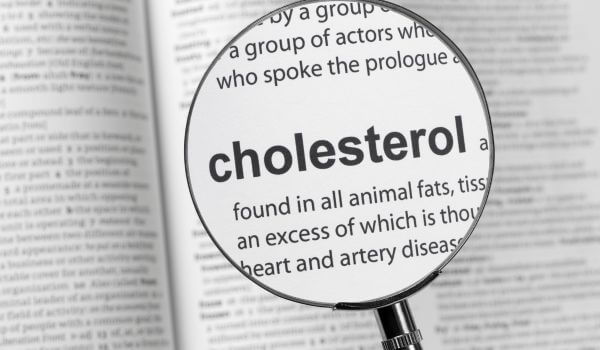 The pancreas is a small gland located in the abdomen that plays two critical roles in the body’s biochemistry. The one for which it is more widely known is as the producer of the hormones insulin and glucagon. These regulate the levels of sugar in the blood. When the production of insulin fails, it leads to diabetes, which is one of the most prevalent diseases in Western society. The less well-known function is to produce several enzymes that mix with foods and act on fats, carbohydrates, and proteins so the digestive system can absorb them. This article focuses on these digestive enzymes and particularly how when the pancreas malfunctions, it can result in exocrine pancreatic insufficiency, which can cause problems for the whole body unless properly treated.
The pancreas is a small gland located in the abdomen that plays two critical roles in the body’s biochemistry. The one for which it is more widely known is as the producer of the hormones insulin and glucagon. These regulate the levels of sugar in the blood. When the production of insulin fails, it leads to diabetes, which is one of the most prevalent diseases in Western society. The less well-known function is to produce several enzymes that mix with foods and act on fats, carbohydrates, and proteins so the digestive system can absorb them. This article focuses on these digestive enzymes and particularly how when the pancreas malfunctions, it can result in exocrine pancreatic insufficiency, which can cause problems for the whole body unless properly treated.
The term used to describe the general malfunction in which the pancreas does not produce digestive enzymes, either in the required volume or in the necessary mix, is exocrine pancreatic insufficiency (EPI). This condition has a few different forms, but the symptoms and treatment are basically the same. When the pancreas doesn’t make or deliver enough digestive enzymes, it is difficult for the body to convert food into forms your digestive system can use. Some of the symptoms of EPI include weight loss, diarrhea, fatty and oily stools, and symptoms associated with malnutrition. The most common treatment is to replace the missing enzymes via capsules that contain the optimal mix of the necessary digestive enzymes. This is known as Pancreatic Enzyme Replacement Therapy (PERT).
How can exocrine pancreatic insufficiency be treated?
When the leading cause of EPI is pancreatic inflammation caused by a blockage in the ducts, it can be treated with a minimally invasive procedure called Endoscopic Retrograde Cholangiopancreatography (ERCP). Otherwise, no direct forms of treatment can typically reverse EPI. Doctors can recommend trying dietary and lifestyle changes to alleviate the symptoms, but whatever the underlying cause of the EPI, this will usually have to be supplemented with pancreatic enzyme replacement therapy using the high-strength pancreatic enzyme supplement medication Creon.
Creon supplies the missing digestive enzymes needed to digest the fats, proteins, and carbohydrates in the food intake. The required dosage will depend on a patient’s individual factors, including body weight and diet. It is generally recommended to take a dose of Creon just before any substantial meal and adjust the dosage according to the type and quantity of food eaten at that meal.
What are the causes of exocrine pancreatic insufficiency?
The most common causes of EPI in adults are:
- Pancreatitis. Pancreatitis is inflammation of the pancreas usually caused by the enzymes acting on the pancreas due to blockage in the ducts carrying the output into the duodenum. If the blockage does not clear on its own, it may end up as chronic pancreatitis.
- Pancreatic cancer. This can be due to the growth of cancerous cells in the pancreas or an invasion from cancer in an organ adjacent to the pancreas, such as the duodenum or liver. Pancreatic cancer is difficult to detect due to the location of the pancreas behind larger organs in the abdomen. In almost 80% of cases, by the time it has been discovered, the cancer has advanced to a stage where it is no longer a candidate for surgical removal.
- Cystic fibrosis. This is an inherited disorder that can lead to EPI because it causes body fluids to be thick and sticky. As a result, they clog the pancreatic ducts and slow the release of digestive enzymes. About nine out of ten people with cystic fibrosis also develop EPI.
- Celiac disease. This is an autoimmune disorder that affects the small intestine and interferes with the absorption of nutrients from food. Although there is no causative connection between the two conditions, it has been observed that in about one-third of adult celiac patients with current or persistent diarrhea, the underlying cause was EPI.
- Trauma to the abdomen that causes physical damage. Blunt trauma can lead to compression of the pancreas against the spine, resulting in contusions or more severe injuries. Penetrating injuries can directly disrupt pancreatic tissue and may damage the pancreatic duct.
- Surgery that removes the pancreas, usually to treat either pancreatic cancer or severe trauma.
- Autoimmune diseases. Systemic lupus erythematosus (lupus) and Sjogren’s syndrome can cause inflammation in the pancreas, damaging the cells that produce digestive enzymes.
What are the symptoms of EPI?
The symptoms of EPI can vary from person to person, but for most people, it will cause one or more of the following:
- Abdominal pain
- Bloating
- Diarrhea
- Fatty and oily stools
- Flatulence
- Malnutrition
- Nausea
- Weight loss
In less common cases, it may lead to problems with night vision and can lead to osteoporosis. Especially if some of these symptoms are experienced shortly after eating, it is essential to consult a healthcare provider to detect the causes immediately.
What are the main functions of the pancreas?
The pancreas plays two essential roles in body chemistry.
- The endocrine system produces the two essential hormones regulating blood sugar levels. These are insulin and glucagon. Insulin is necessary to break down sugars to produce the energy that fuels the whole body. When there are problems in insulin production, it leads to diabetes. Glucagon stimulates the liver to release its stored sugars so that insulin can work on them to release energy. When glucagon is not released in sufficient quantities, it can lead to hypoglycemia.
- The exocrine system secretes enzymes into the digestive tract through the pancreatic duct into the duodenum, the first part of the upper abdominal tract, immediately after the stomach. These enzymes mix together with bile from the liver and gallbladder to help break down the foods coming out of the stomach for digestion and absorption. The pancreas’ digestive enzymes include lipase to digest fats, amylase to digest carbohydrates, and chymotrypsin and trypsin for digesting proteins.
















